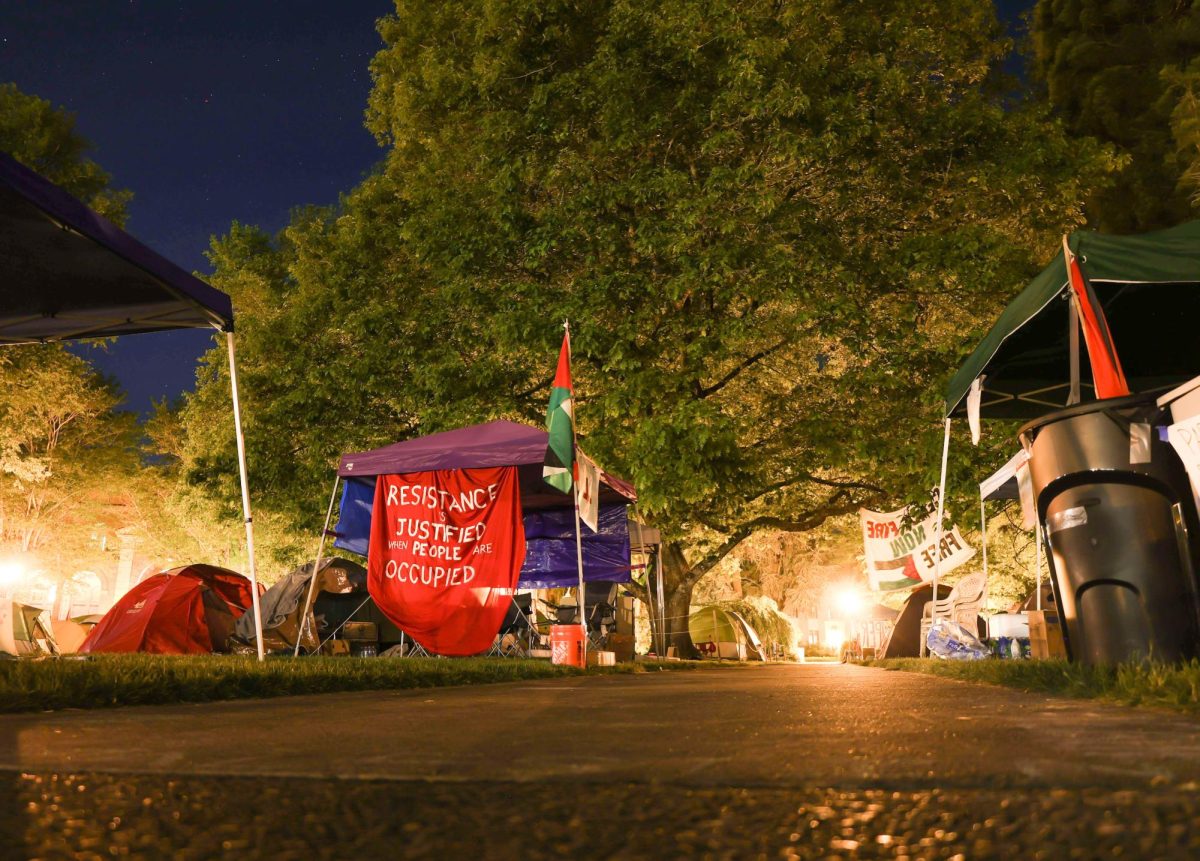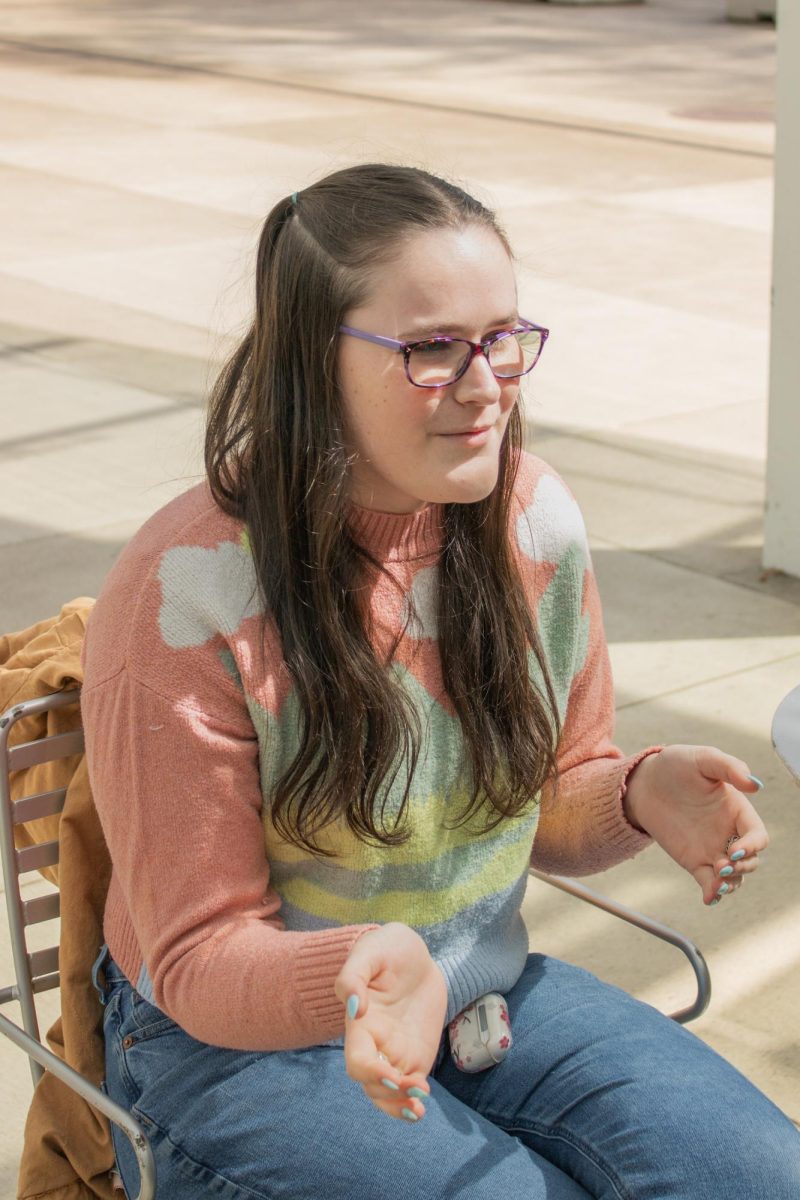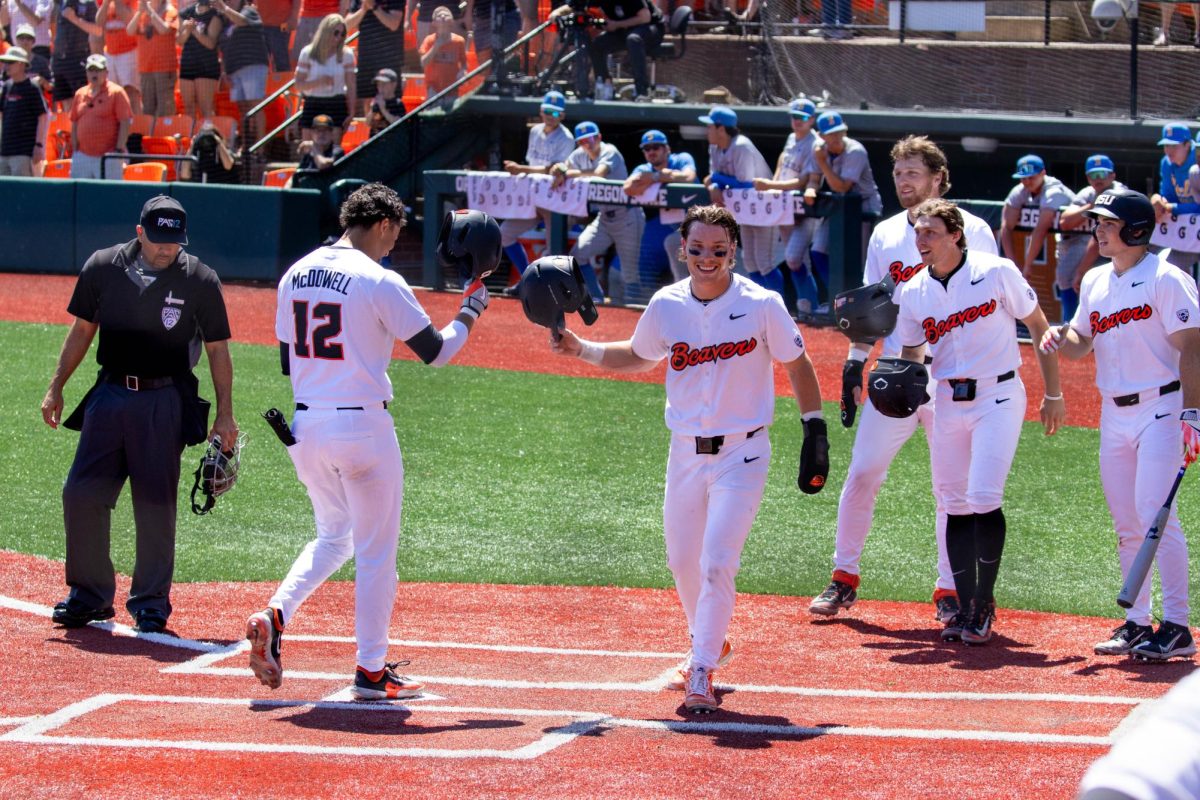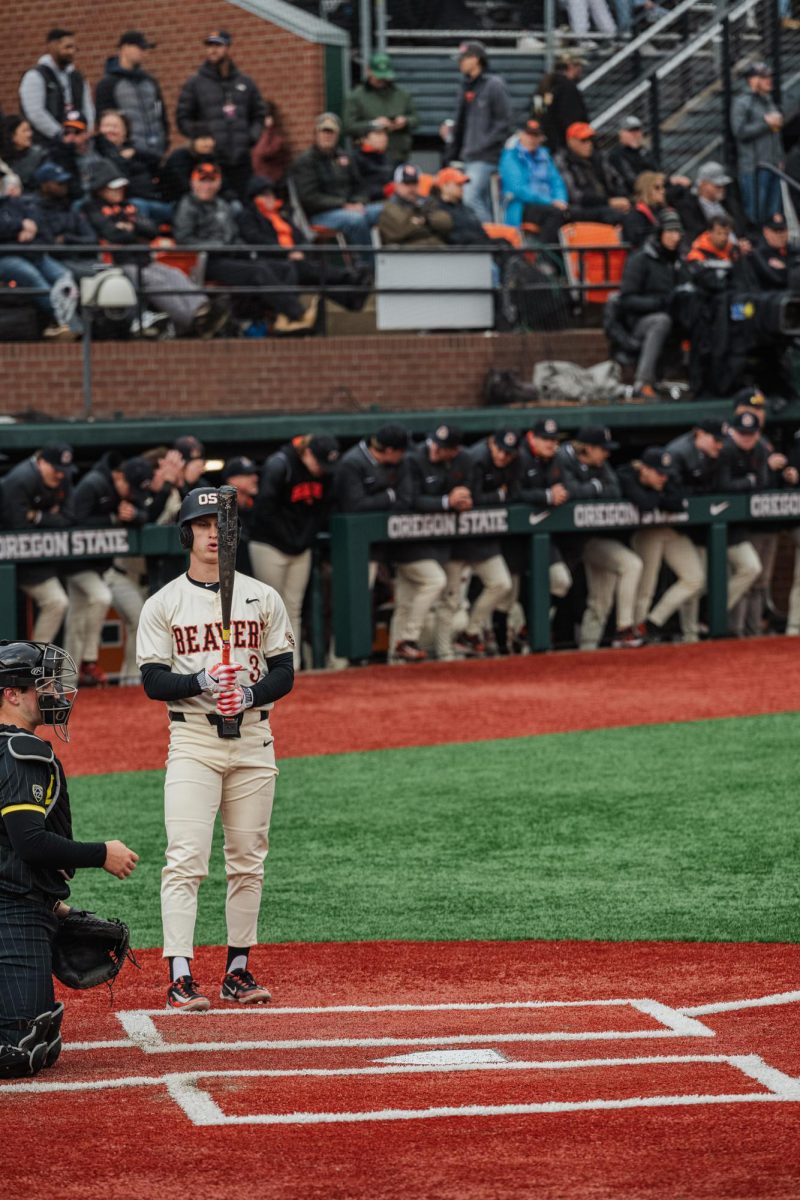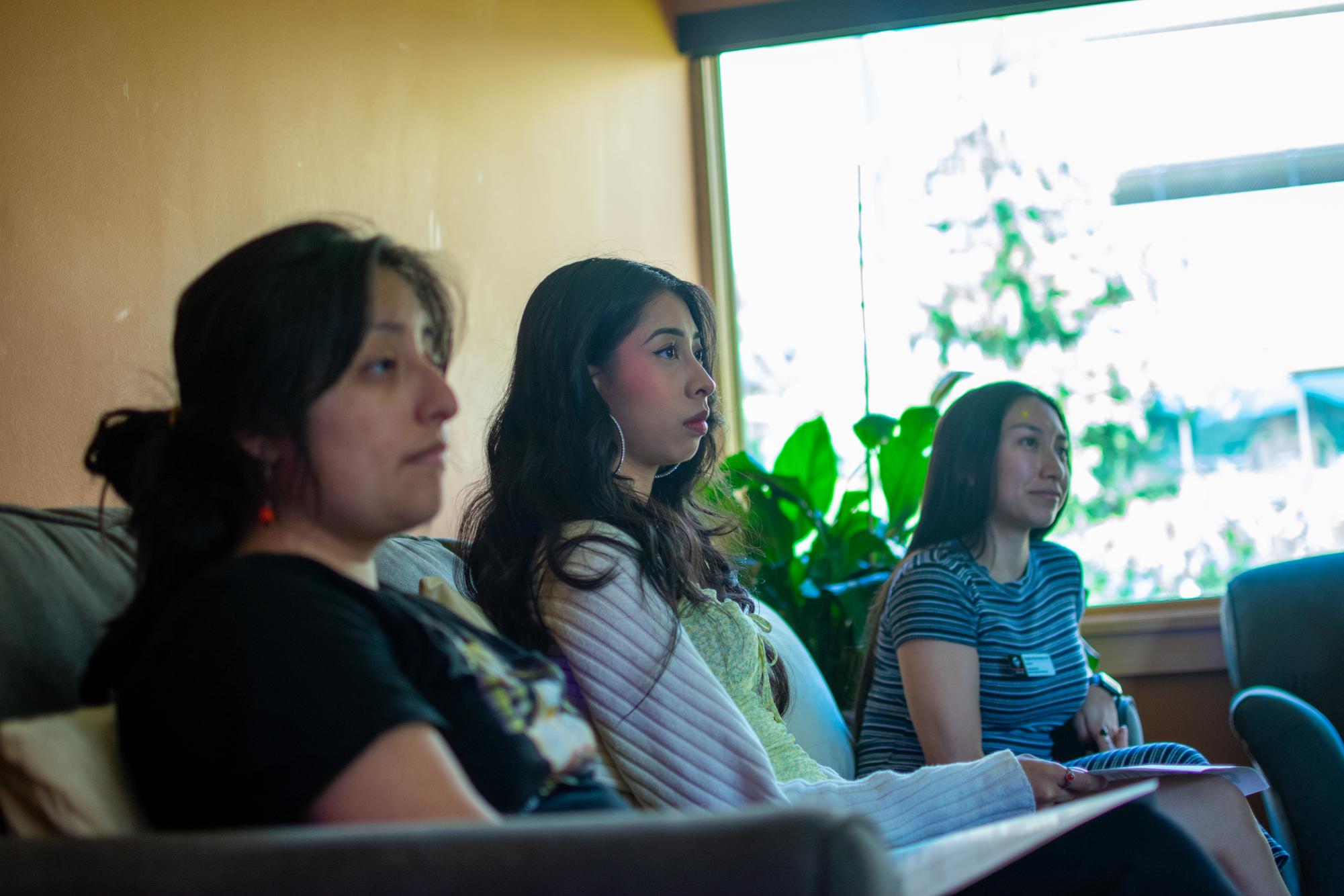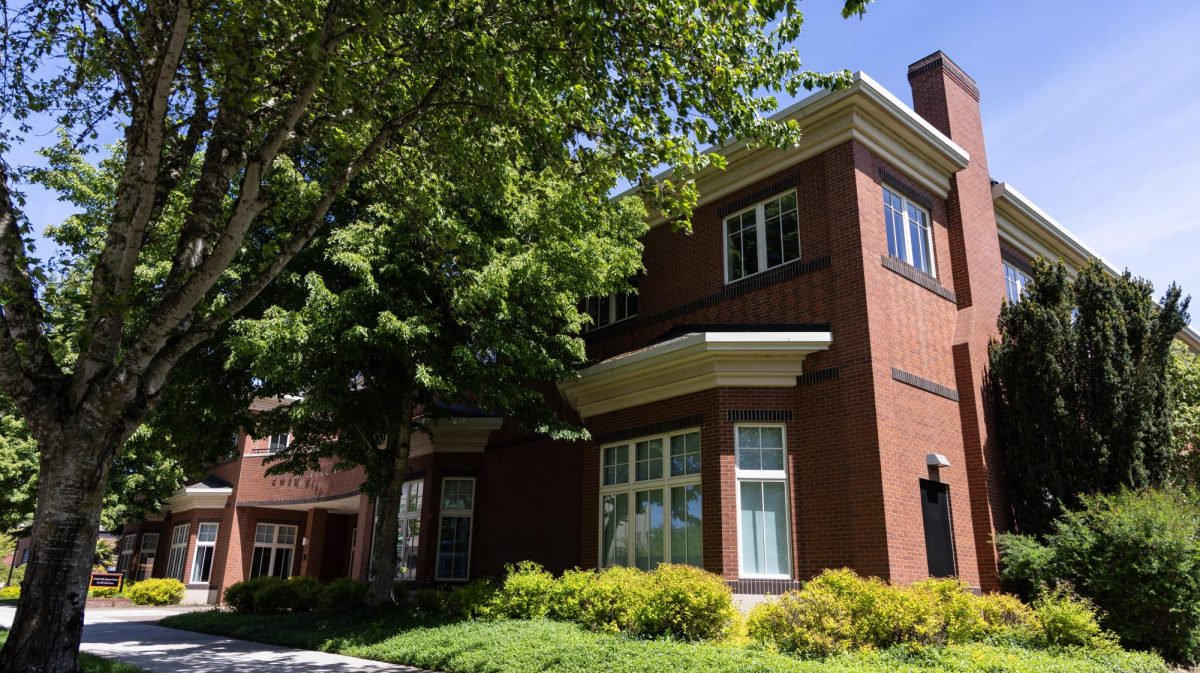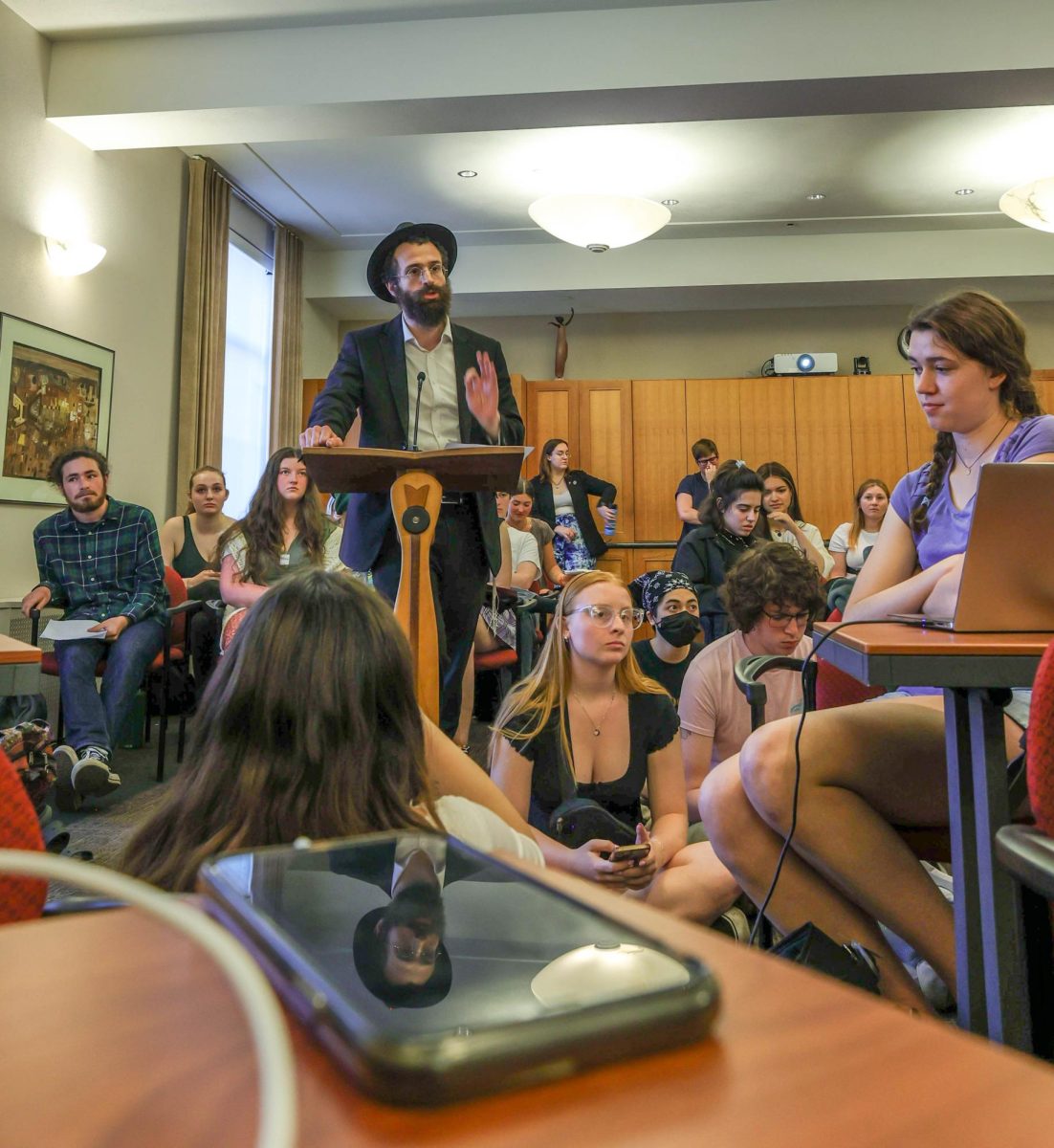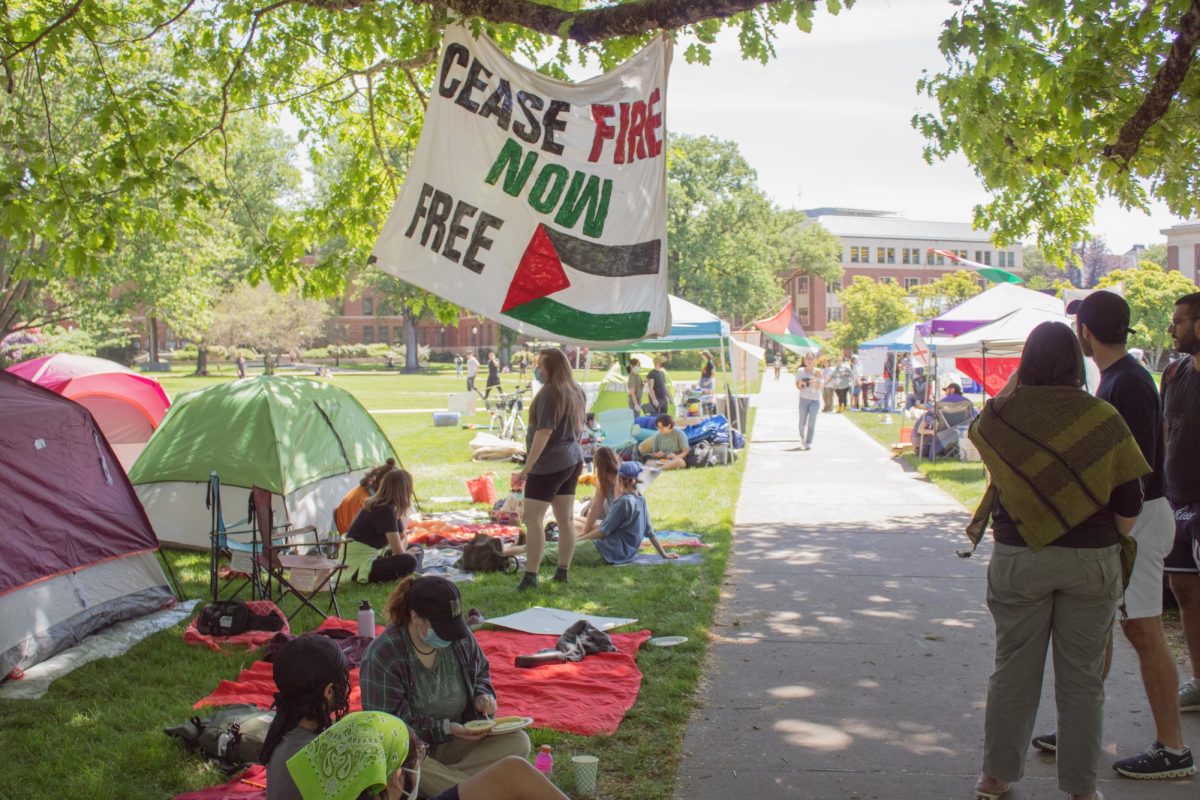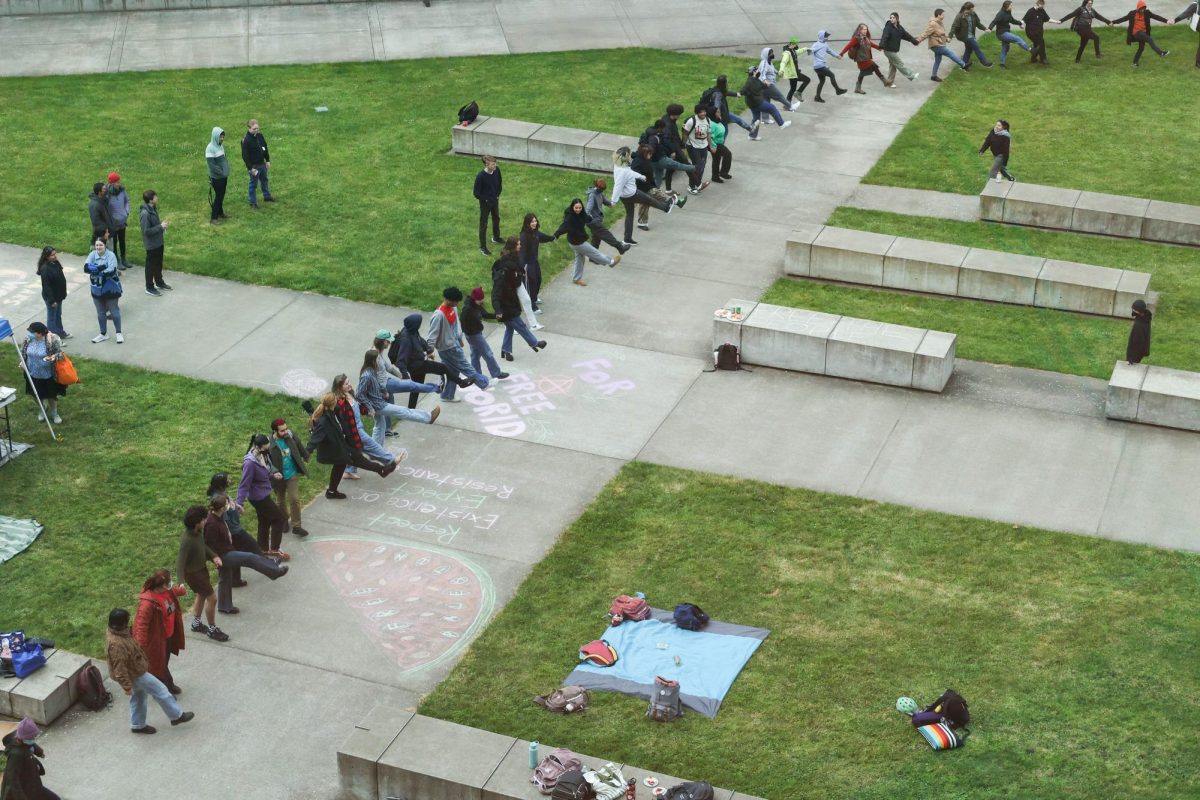Last week, the Centro Cultural Cesar Chavez held a workshop for students, teaching stress management skills to improve their mental health but the work doesn’t stop there for the cultural center and mental health advocacy.
The CCCC has offered its center to Angelica Hernandez, a counselor and doctoral intern at Counseling and Psychological Services , and other Latinx counselors from CAPS to host weekly single-session counseling for Latine students.
“As one of two Latine counselors at Oregon State University CAPS, it was important for me to develop services specifically for my people,” Hernadez said. “I have used the template of already established services CAPS offers and adapted them to best serve the Latine community at OSU.”
Sala Sessions, as Hernandez named it, will run every Monday at the CCCC through the spring term. Students can book their sessions on the CAPS webpage. With it, she aims to explore solutions, provide support, navigate stress and help Latine students connect to resources on campus they may not be aware of.
“Sala Sessions were designed for Latine students to receive unconditional support while navigating a PWI (predominantly white institute) or a space to be seen and understood,” Hernadez said.
The goal is to help students find in themselves the ability to learn the skills to manage mental health triggers like stress and apply the skills used when the occasion calls for it.
According to Hernandez, Latine students should have access to mental health resources and access to people who understand the homes and culture the students are coming from.
Hernadez also hosts Mente Sana, Vida Plena a Latine, student mental health network – also booked through the CAPS website – that meets every Thursday at the CCCC.
This group provides a safe space for Latine students to explore and navigate challenges related to mental health, intergenerational trauma and cultural identity.
The workshop last week – Manejando el Estrés – was hosted in English and Spanish by Monica Olvera, a senior instructor in the College of Health at Oregon State University, at the CCCC.
In the workshop, Olvera incorporated the Recognize, Allow, Investigate, Nurture – RAIN – method, along with her steps on managing stress. The RAIN method is a practice that promotes mindfulness and compassion, attributed to being developed by Buddhist Michele McDonald. His method was later popularized by psychologist Tara Brach.
Olvera guided participants through various breathing techniques, which included physical motions, for participants to identify what they were feeling as they were going through the technique.
She even left students with posters as convenient reminders for students to keep when the workshop was over. With these posters, students can pin them up anywhere and work through certain steps at their own pace.
These steps included affirmations like:
- “Investigar con amabilidad el sentimiento,” meaning be gentle with yourself when acknowledging your feelings.
- “No identificarse con esa emoción, eso no es lo que tú eres. Nutrirse con auto-compasión,” meaning don’t let that emotion identify you, that’s not who you are. Nourish yourself.
Recognition of the importance of discussing challenges with mental health among the Latine population has increased in recent years, according to the Urban Institute.
Since OSU has a 17% Hispanic/Latino enrollment, according to statistics from CollegeVine, Latine students can feel like they are left without a community if they are freshmen or pursuing school away from home in a non-traditional role, which can affect their mental health.
Amanda Putitiza, a graduate anthropology student and community relations representative at the CCCC, assisted in organizing Manejando el Estrés last week. She hopes that the workshop will allow students to learn skills to learn how to manage things that cause students stress.
Putitiza says that Olvera is an enthusiastic advocate for social justice, diversity, equity and inclusion. Her work even extends into the Corvallis community. She teaches an online course in Spanish on stress management at the Corvallis Multicultural Literacy Center.
“I think wellness and self-care are so important for all of us, especially students,” Puitiza said.
According to Putitiza, Manejando el Estrés was done as a labor of care for teaching the Latine community skills to be more mentally sound and providing students with resources. Students often neglect stress and making time for self-care is often forgotten.
“This workshop specifically deals with stress, which is something I think we also sometimes struggle with knowing how to manage,” Puitiza said. “I hope anyone who wants to learn more about managing their stress will learn new skills.”
ScienceDirect, an academic science journal, released a paper in 2020 stating immigrant parents of Latine youth were less likely to seek mental health services and teach their children to advocate for services.
The paper states, “Latinx parents of youth affected by internalizing disorders are even less likely to seek mental health services. Individual and family-level factors, such as mental health literacy and attitudes towards help-seeking, are often-cited barriers to receiving mental health services.”
Another factor at work is the Latine culture that stigmatizes mental health and seeking mental health services.
“Somatization, or the expression of psychological distress through physical symptoms, is common in Latine cultures,” Hernandez said. “Latine individuals, particularly immigrants, may experience significant stress related to acculturation, discrimination and immigration status.”
According to Hernandez, the stressors from those experiences can exhaust their mental health and impact their help-seeking behavior.
Furthermore, if Latine parents don’t know about mental health problems in youth, specifically how they present, they may be less likely to identify the need for treatment. Even if mental health services are available, the barrier to getting help for their children is higher if they have limited English-speaking skills.
Other Latine individuals grew up in a home environment that didn’t encourage talking about mental health and the impact that it had on the youth.
Itzel Magaña, daughter of Mexican immigrants, said her understanding of mental health was limited when she was younger.
“My family did not encourage me to talk about mental health when I was growing up,” Magaña said. “I don’t think I had a concept of mental health until after I finished high school.”
When Latine youth are left without knowing about the struggles of their mental well-being, it can also lead to neglect in other areas of their lives.
According to ScienceDirect, something as small as managing stress can go a long way in the Latine community.
Openly discussing feelings and speaking about mental health and how to go about getting into a good headspace can be highly stigmatized. The judgment from fellow members of the community and family members of those seeking mental health care stands to face stigma by association.
For students who identify as queer the road to managing stress and getting a handle on mental health can be even more complicated to navigate.
A study in the American Journal of Orthopsychiatry called this the “Minority Stress Theory.” The theory explains the differential treatment that causes stress due to disparities in mental health access between heterosexual and non-heterosexual youths.
The study states that in our society, queer youth is exposed to more prejudice and stigma than others. As a result, they experience stress on a greater level. Minority Stress Theory identifies the negative effects of their social environment as the cause of their stress. Growing up in an environment like this can lead young Latine queers who are away from home for the first time to making reckless decisions.
Another result of living in an environment like this might also be attributed to internalizing negative feelings, like internalized homophobia.
The same study also states that “Internalized homophobia has been linked to a host of negative outcomes, including anxiety, depression, suicidal ideation, sexual risk-taking, problems in intimacy and lower well-being and overall self-esteem.”
If a Latine student is from an urban background or if they identify as queer, they may not have the necessary resources to advocate for themselves to ask for mental health assistance.
Together, the conversations Olvera, Hernandez and Putitiza hope to have will acknowledge the struggles faced by the Latine community and queer Latine youth. These conversations can also work to recognize the intersection of oppression and the need to address mental health, emphasizing breaking the stigma of mental health and generational trauma.
“I realized my parents tried their best, and I am quite proud of them, it is entirely up to me to set boundaries and break generational trauma,” Magaña said. “I sincerely hope that in the future, Latinos will have access to research-based tools so that we can help our parents gain an awareness of mental health.”





